Rental Property as an investment
saltylime
8 years ago
Featured Answer
Sort by:Oldest
Comments (30)
lucillle
8 years agoplllog
8 years agoRelated Discussions
What would you do to this investment rental kitchen?
Comments (47)As an apartment landlord (multiple units) for 24 years, I have learned you must keep up with the competition if you want competitive rents, so it's up to you to decide where you want to be on the rental scale. Nicer units bring not only higher rents but also a higher class of tenant, and the latter CANNOT be overemphasized! In my experience, by far the best screening method is a credit check, because RARELY will someone with bad credit be a good tenant, and USUALLY someone with good credit will be a good tenant. Of course, and this goes without saying (but I'll say it anyway), a tenant should have an income sufficient to pay the rent (one week's pay equals a month's rent is my standard). As for the condition of the unit, at a minimum I repaint (rarely does a touch-up suffice), have the carpet professionally steam-cleaned, make sure everything is in good working order, and CLEAN, CLEAN, CLEAN! It never ceases to amaze me when a prospective tenant walks in to look and the first thing they say is "Wow, this is really nice and clean compared to what I've been seeing!". This comment is also a clue that a person who appreciates a clean unit wants a clean unit, and is apt to keep it that way. Updated appliances are, in my experience, much more important to a tenant than newer cabinetry and countertops (and it's also much cheaper on the landlord), as long as the cabinetry is not beat-up, broken, etc. I've probably given you more information than you wanted, but the bottom line is to get the best tenants you possibly can for the longest possible time, and to do that you need to run credit checks and present the unit in the best possible light. As for students: avoid them at all costs, unless you're almost exclusively in the student market. They're generally (a) hell on wheels and (b) hell on an apartment, and the very last thing you need is a tenant that causes other tenants to be calling the police or, worse yet (if you have multiple contiguous units), move out....See MoreYoung guy considering investing in rental property
Comments (11)At 21y/o ou are too young to take on a big 18 unit building like this. You still live with your parents and do not even know what it is like to live on your own, much less manage an apartment building while trying to learn to live independantly. The renters in this building are probably way more street smart than you, and they will take advantage of that fact. You sound like you have a good head on your shoulders and a good work ethic. I commend you for having goals for yourself that will keep you financially stable. Start out with a duplex or triplex. It will be easier to manage and you can know your renters better. There will be less repair and maintenance issues and less turnover to deal with going with a smaller investment. Being a landlord to an 18 unit is a full time job and you already have one. Do you really want to be sitting around all day waiting to hear your case called in eviction court when you could be out making $XX per hour? Do you have time to run back and forth to the apartment for weekly repairs?...See MoreInvestment Property Kitchen - tips for new appliances, countertop?
Comments (12)If you are selling to an investor (for a rental), they won't mind a laminate countertop. If your target customer is a new home buyer, they would probably like something nicer. Check out getting granite countertops made from pre-fab slabs. You don't have that much countertop, so the slabs shouldn't be too much and the fabrication should not cost too much either. Go with something light as the corner with the sink is a dark hole. Stainless appliances are nice and available at many price points. It's better if they all match....See MoreYikes! All Things Investment Property....Help this First Timer!
Comments (108)Just to come back and update this thread, I just really lucked out and decided to manage this rental hime myself. I advertised it on Zillow and had it rented quickly to a great family who took care of it very nicely. They lived there 18 months, I Re-listed it on Zillow and had 24 applications! I raised the rent, and now have a lovely small family that lives the neighborhood. This has been a great rental home investment....See Moresusanjf_gw
8 years agoUser
8 years agoUser
8 years agojoaniepoanie
8 years agoMichael
8 years agowildchild2x2
8 years agolast modified: 8 years agobob_cville
8 years agobob_cville
8 years agomorz8 - Washington Coast
8 years agobob_cville
8 years agoplllog
8 years agopekemom
8 years agoMichael
8 years agoUser
8 years agoMichael
8 years agoUser
8 years agobob_cville
8 years agoMichael
8 years agochisue
8 years agolast modified: 8 years agoElmer J Fudd
8 years agoMichael
8 years agoElmer J Fudd
8 years agolast modified: 8 years agomstanis27
8 years agoplllog
8 years agolast modified: 8 years agomojomom
8 years agosaltylime
8 years agonicole___
8 years ago
Related Stories
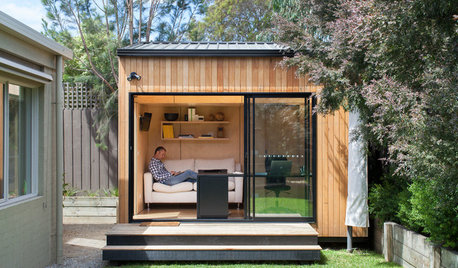
REMODELING GUIDESDesign Workshop: Is an In-Law Unit Right for Your Property?
ADUs can alleviate suburban sprawl, add rental income for homeowners, create affordable housing and much more
Full Story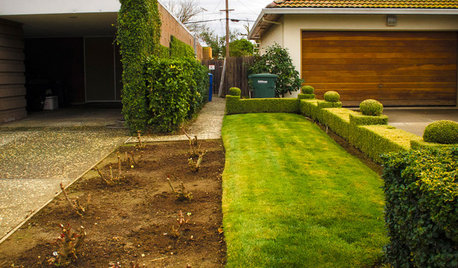
EXTERIORSWhere Front Yards Collide: Property Lines in Pictures
Some could be twins; others channel the Odd Couple. You may never look at property boundaries the same way again
Full Story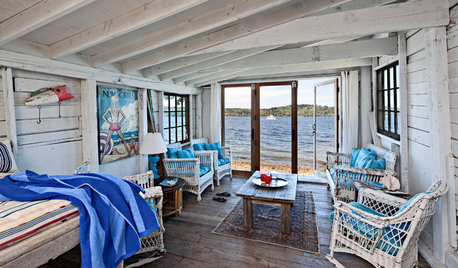
FEEL-GOOD HOMEEasy Ways to Spruce Up Your Summer Vacation Rental
If your rented cabin, cottage or beach shack isn’t up to par, fear not. A few tweaks can make it more comfortable
Full Story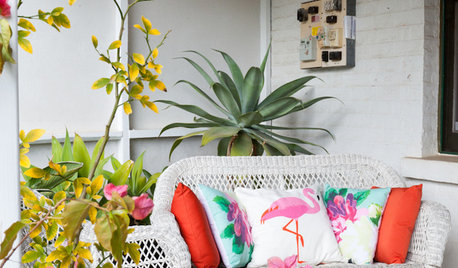
DECORATING GUIDESHouzz Tour: Clever DIY Tricks Warm a Rustic Rental Cottage
An interior designer finds ways to beautify her family’s temporary home — and still keep the landlord happy
Full Story
KITCHEN DESIGNKitchen of the Week: Making Over a Rental for About $1,500
Fresh paint, new hardware, added storage, rugs and unexpected touches breathe new life into a Los Angeles apartment’s kitchen
Full Story
DECORATING GUIDESImproving a Rental: Great Ideas for the Short and Long Haul
Don't settle for bland or blech just because you rent. Make your home feel more like you with these improvements from minor to major
Full Story
DECORATING GUIDESPersonal Spaces: Ideas for Making a Rental Your Own
Think creatively — and kiss your landlord if he or she allows you to paint those bare walls
Full Story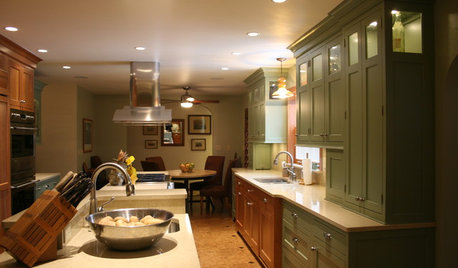
KITCHEN DESIGNSmart Investments in Kitchen Cabinetry — a Realtor's Advice
Get expert info on what cabinet features are worth the money, for both you and potential buyers of your home
Full Story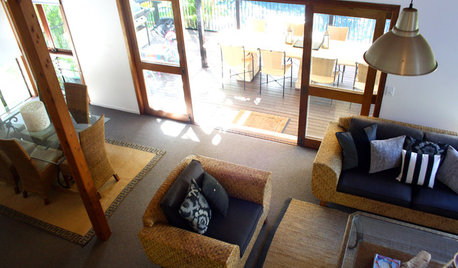
HOUZZ TOURSMy Houzz: Caribbean Beachside Style in Australia
Ditching a dated color scheme, an old deck and more, a couple renovates a four-bedroom home as an investment and vacation property
Full Story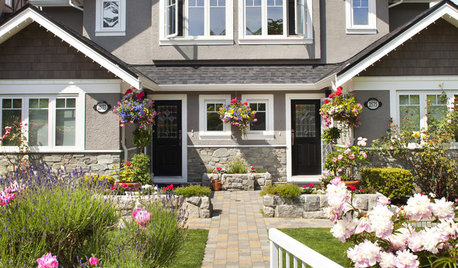
LIFECould You Be a Landlord?
Sure, the extra income would be great. But jumping blindly into owning a rental property could be disastrous. Here's what you need to know
Full Story



Elmer J Fudd